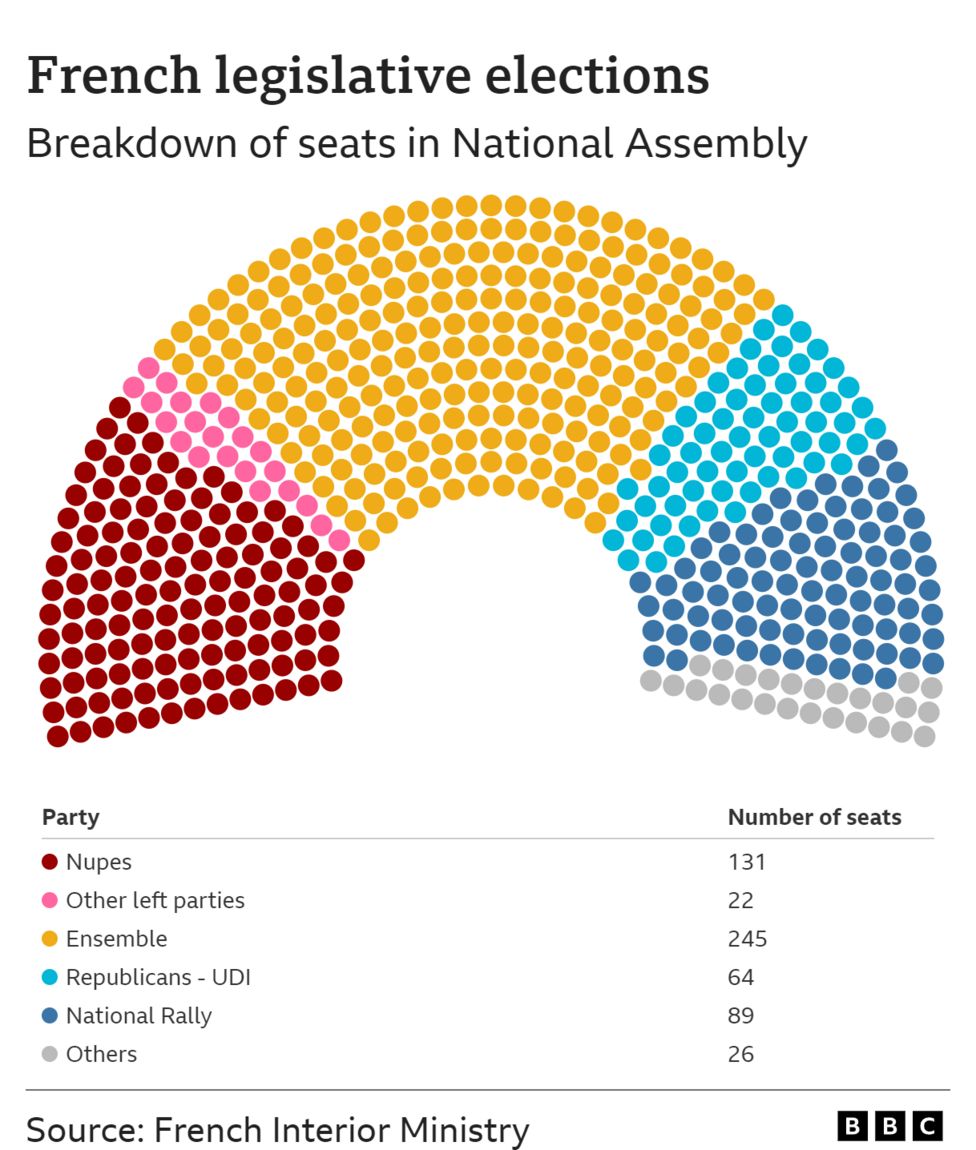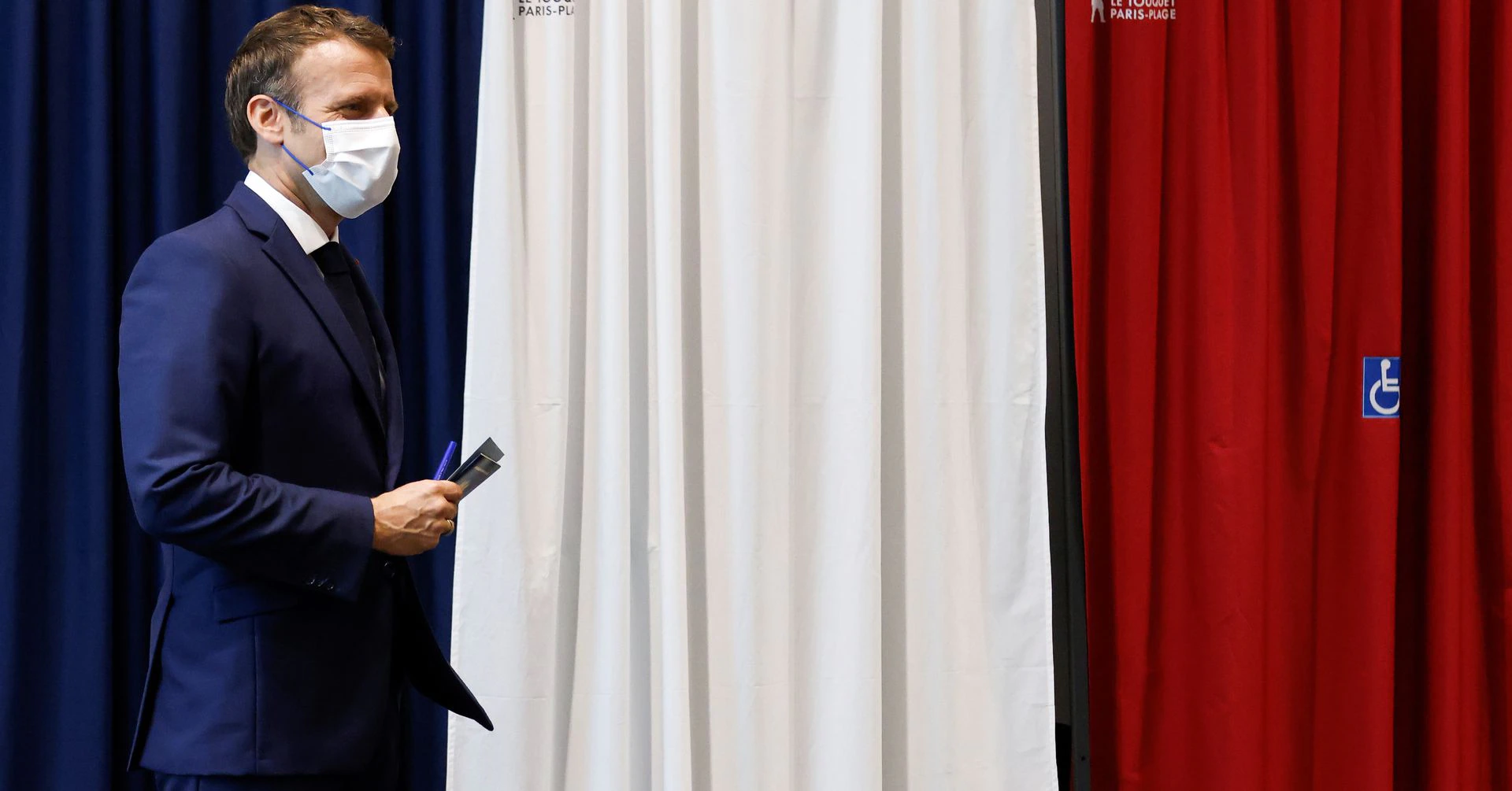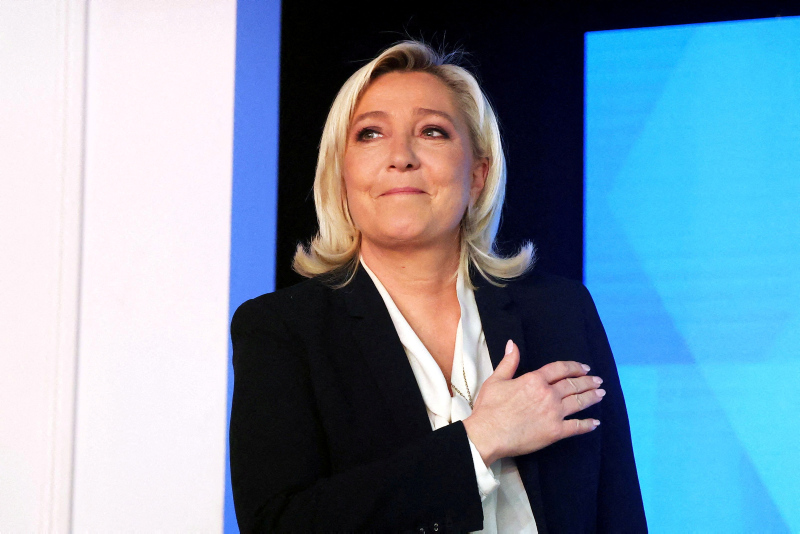'Election Syndrome': Will the Results of the Legislative Elections in France End the Rage of Hate Speech Against Immigrants?

French President Emmanuel Macron suffered a political setback, Sunday, in the second round of the legislative elections, by losing an absolute majority in the National Assembly, which will complicate his ability to govern after elections in which the far right and the left made a major breakthrough.
Macron, who was re-elected in April for a second term, will have to find alliances to implement his reform program over the next five years.
The coalition led by President Emmanuel Macron lost its majority by winning 245 seats in the 577-seat assembly at the end of the second round of legislative elections, according to the full results published by the Ministry of the Interior in June 20.
In other words, the Ensemble alliance was very far from the required result to secure an absolute majority (289 seats). The left NUPES alliance won 135 seats, and the far-right National Rally won 89 seats, according to an AFP tally based on results published by the ministry.
On the president's camp, Minister Gabriel Attal’s first comment acknowledged that the results were "far from what we had hoped for."
Attal said on the French channel TF1: "What is emerging is an unprecedented situation in political and parliamentary life, which will force us to transcend our constants and divisions."
Melenchon considered, on Sunday evening, that the loss of Emmanuel Macron's coalition of the absolute majority in the National Assembly is "above all an electoral failure" of the French president.
"It is a completely unexpected and completely unprecedented situation. The defeat of the presidential party is complete and there is no majority," the leftist leader added.
A Minority Leader
The right-wing National Rally, led by Marine Le Pen, won between 89 seats, according to the same sources, which represents a major breakthrough.
"The lesson from tonight is that the French people have made Emmanuel Macron a minority leader," said Jordan Bardella, acting president of the right party, considering the election result a political "tsunami.”
The far-right party's number of seats multiplied 15 times after its leader, Le Pen, reached the crucial round of the last presidential election and was re-elected on Sunday as a member of parliament, allowing her to form a bloc for the first time in more than 35 years.
Speaking proudly to supporters in her constituency in the northern Henin-Beaumont region, Le Pen said the parliamentary bloc won by the National Rally is "by far the most numerous in the history of our political family.”
She pledged to exercise "resolute opposition" and "responsible and respectful" institutions.
As for the traditional right, it won about 60 seats and could play a decisive role in the new parliament, although it lost its place as the largest opposition bloc in the parliament.
The results are likely to harm the country's political stability, and political expert Alain Duhamel predicted that every vote on a bill would be "open to the unknown" because there was no absolute majority.
Hate Speech
The director of the Maghreb Center For Strategic Studies told Al-Estiklal: “The electoral race, in general, is marked by the escalation and parties attempt to use the immigration card to win the support of voters. Now, with the end of the rhetorical escalation and the electoral campaigns, it is expected that the hate campaigns against immigrants will decrease.”
Mustafa Tousa, a political analyst specializing in French affairs pointed out that many against-immigrant measures were taken in a sensitive electoral circumstance in which the xenophobic extremist rhetoric led by Eric Zemmour and Marine Le Pen was at its highest levels attracting votes. Macron was forced to take these showy steps to send a message to the French public opinion that he is part of the counter-immigration wave, and he is able to take concrete measures to combat clandestine immigration.
Tousa emphasized that the new government will work to bypass the measures that harm the quality of economic and humanitarian relations between France and Morocco, Algeria, and Tunisia.
However, the France-based political expert on politics Ismail Khalafallah told Al-Estiklal that: “The increase of the far right seats from 8 to 89 is shocking and even Le Pen did not imagine or dream of it. It will have bad consequences for immigrants and even for French citizens of immigrant origin.”
He added: “The party has multiplied the number of its representatives fifteen times and exceeded the ceiling required to form a bloc in the National Assembly, in an unprecedented way for more than 35 years. These matters will, of course, be reflected in the policies that the government will take in the future in the face of such a radical exposure.”
Abstention Rate
Without surprise, a large part of the French abstained from participating in the fourth ballot in the two months since the presidential elections, especially with the unprecedented heat wave hitting the country.
The abstention rate ranges between 53.5 and 54 percent, an increase of more than one percentage point over the first round (52.49 percent), according to polling centers. Yet, the percentage will not reach the record for abstentions during the second legislative session of 2017 (57.36 percent).
These elections conclude a long electoral scene that will confirm the broad reconfiguration of the political landscape in France around three major blocs at the expense of the traditional right-wing and left-wing parties, a transformation that began with the election of Macron as president in 2017.
The elections came in the context of successive crises, from the COVID-19 pandemic to the war in Ukraine, rising inflation, and economic risks.
Expectations indicate that the defeat of a number of Elisabeth Borne's government ministers who ran for the elections will push them to resign, according to the norms established by Macron since he took office.
Sources
- Macron loses his absolute majority in Parliament, and the far right and the left are advancing [Arabic]
- The formation of a new French government paves the way for an end to the 'visa war' between Rabat and Paris [Arabic]
- French legislative elections: the far right records a major breakthrough, describing it as a 'tsunami' [Arabic]













